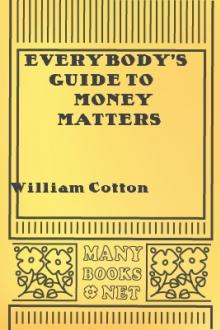Another form of money, if it may be so termed, is the Bank note. This is simply a promise to pay, on demand, the amount represented on the note, in gold or some legal tender. The most common in use are £5 notes, but there are others of different denominations, such as £10, £20, £50, £100, &c. Some country banks still issue these notes, but they are by law restricted from issuing beyond a certain amount fixed by the Bank Act of 1844. No new bank can issue notes, and those which have the privilege are gradually relinquishing it, so that in course of time there will be only one bank entitled to issue notes, and that is the Bank of England. The notes of country banks, other than the Bank of England, are not a legal tender; that is, it is not compulsory on anyone to accept them in payment of a debt. The Bank of England is the oldest joint-stock bank in the country, and although, in its constitution, it does not differ materially from other joint-stock banks, yet, being the agent of the British Government in all money matters, and possessing other exclusive privileges, it is looked upon as one of the enduring institutions of the country.* (* See Joint-Stock Banks, p. 68.)

Write Your Reviews